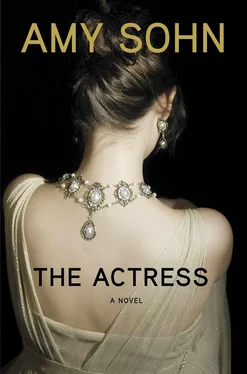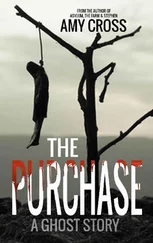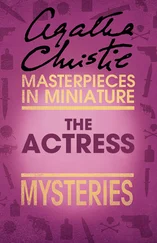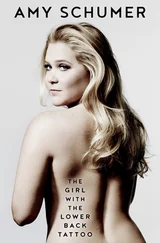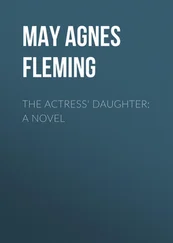They shot Pinhole in just forty-four days in June and July, in France, England, and Germany. Deborah hired Victor Ruiz, the director of photography on I Used to Know Her. The housing was low-budget and bare-bones, but Maddy didn’t care. Lucia and Jake came along because she didn’t want to be apart from him for such a long time. Zack was a producer and was on set every day.
During the shoot, she felt herself rediscovering everything she had loved as an actress, with the added thrill of having written Lane’s words. In August, Deborah began cutting the film with the editor, with a plan of submitting it to the Toronto International Film Festival, which Christine thought was a better market than Mile’s End.
It was not until after they wrapped and Maddy returned to Hancock Park that she began to think about leaving L.A. She had never liked the new house, even after Steven’s art and furniture had been removed. She had always felt like a visitor in Los Angeles, never a resident, and she wanted to move back to Brooklyn. She knew her life in New York would not be anything like what it had been before, but she wanted to raise Jake in the city. She wanted to go to the theater again, to take him to quality children’s plays and to the Met. She wanted him to have friends who weren’t children of celebrities but normal New York kids.
When she emailed Steven to tell him her plans, he was supportive. He said he would buy an apartment in Manhattan so he could spend time with Jake without having to fly him across the country. His consent came as a relief, because her lawyer had said that a lot of ex-husbands wouldn’t have allowed it.
In the fall she closed on a town house on South Elliott Place, just a few blocks from where she had lived with Dan. Jake thrived on the playgrounds and in Fort Greene Park, and Maddy found the parents low-key and friendly but not prying. There were novelists and jazz musicians on her block, actors and academics.
She began to take acting jobs again. The directors in New York were smart, the scripts complex, and the roles for women rich. She did a romantic comedy set in a sex-toy shop, and a thriller about an idiot-savant boy. Never again would she play set dressing, no matter how high the salary.
As a manager, Zack understood that she wanted to work only on projects she valued, and they went over each script carefully, discussing the merits of the roles. It was a type of collaboration she had never experienced with Bridget.
Though Laight Street Entertainment was young and had a small slate, Zack was soaring as a manager-producer. Velvet, starring Munro Heming as Frank McKnight, came out in March and did $20 million in its first weekend, a huge figure for a film with no big celebrities and no special effects. Critics loved it, and one of them wrote that the film’s success was “reason for confidence in the future of intelligent American cinema.”
Around the same time that Velvet came out, there was another buzzed-about release: a zombie picture about an ordinary father and husband who tries to save the world, called The Undead . The week of the film’s release, Ryan, who played the lead, gave an interview to New York magazine in which he spoke about zombies as a metaphor for fear. He went on to say, “I guess I’m just really opposed to prejudice and hate being dominant things in our culture. As a gay man, I’m saddened to see that narrow-mindedness and judgment can ruin lives.”
This set off a new round of think pieces about casual coming-outs. An Entertainment Weekly critic put him, along with Kira, on a list called “The Post-Gay Power Elite.”
Maddy read all the chatter, but it took her some time to get around to reading the original interview, which she did one warm spring day on a playground bench while watching Jake, almost two, toddle around. She called Steven from her cell. “Did you read Ryan’s thing in New York ?” she asked.
“Of course I read it. I don’t live under a rock.” She waited for him to say more, but he didn’t.
After he had returned to his seat the night of the Oscars, they hadn’t spoken about his moment on the stage. He acted as though nothing was out of the ordinary, as though he had never intended to do anything other than present. And she never asked. They hobnobbed at the Vanity Fair party, mingling separately.
Then Steven had gone off to Turkey to shoot The Hall Endeavor, and he was said to have started an affair with Taylor Yaccarino. Maddy had chuckled when she read the item, imagining that Taylor knew exactly what she was getting herself into. They were constantly photographed going to dinner and nuzzling in public.
“And what did you think of what Ryan had to say?” she asked Steven on the phone.
“It didn’t surprise me very much. He’s never married, he’s thirty-four, and he grew up in Berkeley.”
She laughed and realized it had been a long time since he had made her laugh. “I know you didn’t grow up in Berkeley,” she said, “but do you think you could ever do something like that?”
“Maddy,” he said, “I’m from a different generation.”
On a sweltering day in August while she was with Jake on Governors Island, Maddy got an email saying that Pinhole had been accepted into Toronto. When she opened it, she screamed, jumped up and down, and called Zack. She felt that her years of slaving over the script, and all her hard work as an actress, had finally paid off. Whether it won anything or not, she would be going to Toronto with a project she had generated from her own mind, out of the story of a complicated woman’s life.
Steven offered to take care of Jake in his Gramercy Park apartment so she could be completely focused during the festival. She paid for their cast and crew to fly over, and rented a huge house near the festival headquarters so everyone could stay together.
The first screening of Pinhole was at eight on Friday night, a prime spot. The theater was already packed when Maddy walked in with Deborah and Zack.
Maddy took her reserved seat next to her cast and crew. Lane Cromwell’s daughter, Jean, had flown in and would be watching the film for the first time.
The lights went down.
The opening shot was a point-of-view from a 1920s camera snapping photos. The shutter closed, and the next frame was Maddy as Lane, posing for a slip ad. The flash popped again and again, and you could see by Lane’s expression that she was uncomfortable and out of her league. The photographer in the film called out directions off camera and she vamped, and then there was a freeze-frame and the screen went to black. Over a gypsy-jazz song, the credits appeared in simple, stark, white-on-black. Maddy’s title card was the last before Deborah’s. When she read the words “written by Maddy Freed,” they felt like a prediction.
There was a panel discussion following the screening and she trotted up to the stage along with the cast and crew. After a few questions about her writing process and discovery of Lane’s story, a heavyset bearded guy with black-framed glasses raised his hand. “This is the first film you’ve written since your divorce from Steven Weller, isn’t it, Maddy?”
“Just to clarify, it’s the first film I’ve written,” she said. “Ever. I collaborated on some things before, but this is my first solo screenplay.”
“I was thinking as I watched it that Lane kept trying to find her happiness in men, but it didn’t work. Is that something you relate to personally? Would you say this film is on some level about your anger at your ex-husband?”
There were whispers in the audience. People seemed to get that the guy was putting her on the spot, or maybe they wanted her to say something buzz-worthy and scandalous because her divorce had been all over the news.
Читать дальше
